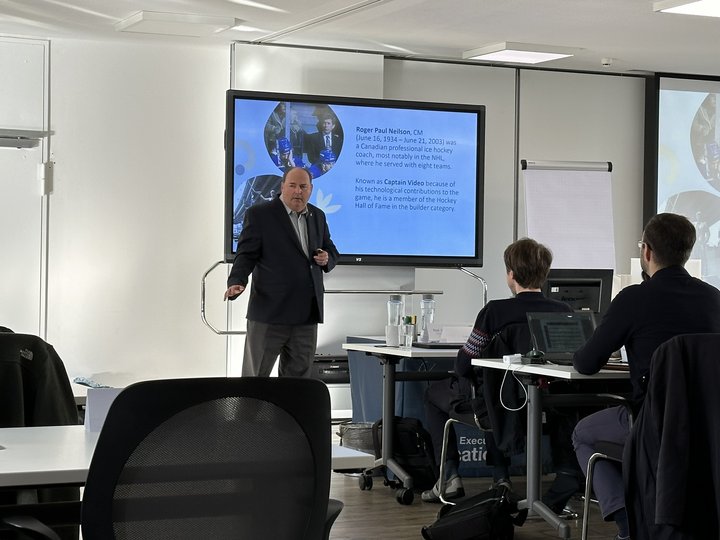In October 2023, the TUM Neurophysiological Leadership Lab (NeLeLab) had the distinct honor of hosting Prof. Pierre Balthazard for a research visit, marking a significant event in the lab's ongoing efforts to integrate neurophysiological methodologies with social science research. Prof. Balthazard, known for his pioneering work in applying neuroscience to leadership studies, brought a wealth of knowledge and expertise to the lab, enriching the research environment with his insights into the neurophysiological underpinnings of leadership behavior. This visit was particularly noteworthy as it provided an invaluable opportunity for collaboration and knowledge exchange between Prof. Balthazard and the NeLeLab team.
During his stay, Prof. Balthazard engaged in various collaborative research activities, workshops, and discussions, focusing on how neuroscientific approaches can enhance our understanding of leadership dynamics. His presence sparked lively debates and inspired new research directions, emphasizing the importance of interdisciplinary approaches in unraveling the complex nature of leadership. The lab's researchers, led by Prof. Claudia Peus, found Prof. Balthazard's contributions to be immensely beneficial, offering new perspectives and methodologies that could potentially lead to groundbreaking discoveries in the field of neurophysiological leadership studies.
The NeLeLab, with its mission to advance methodological literacy in experimental research and neuroscience within the context of management and leadership, viewed Prof. Balthazard's visit as a cornerstone event that significantly bolstered its research capabilities. This collaboration highlighted the lab's commitment to pioneering research at the intersection of neuroscience and leadership, promising exciting developments and further collaborations in the future. Prof. Balthazard's visit not only reinforced the lab's standing in the academic community but also set the stage for future interdisciplinary projects that could transform our understanding of effective leadership in complex organizational settings.
